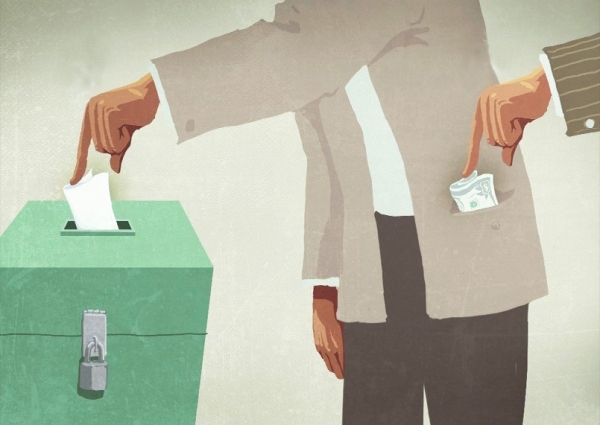Lebanese voters are caught between revolution and bribery
Pursuant to the Lebanese Laws and Constitution, the Lebanese voters (about 3.9 million) are supposed to cast their ballots and elect their 128 MPs (and perhaps 6 additional diaspora MPs) between March 22 and May 21, 2022 if no unexpected developments arise.
These elections will be of great importance for they will take place after the so-called “October 17, 2019 Revolution” (Uprising or Protest) and the socio-economic collapse of the country. The elections are supposed to be held in accordance with the current Law No. 44/2017, on the basis of which the 2018 elections were held. This Law divides Lebanon into 15 electoral districts and adopts the preferential voting and the closed-list proportional representation system.
In the 2022 elections, new political alliances may be forged and voters may change their attitudes toward the political regime and choose to boycott the elections, thereby decreasing the voter turnout from 49.7% in 2018 to 20%-25% and questioning the legitimacy of Parliament. Candidates may also bribe voters, as happened in the past parliamentary elections, a habit that the Election Supervisory Committee has failed to curb.
The paradox lies in the following:
- In light of the collapse of the Lebanese pound against the dollar, the cost of 2022 elections is expected to go down. In the 2018 and 2009 elections, the price per vote in some electoral districts reached about USD 1,000. It is expected however to vary up and down in the 2022 elections. The well-off candidate of the small districts may win by spending between USD 500,000 and USD 1 million. Information International has found that the electoral spending of some 2018 candidates has ranged between USD 5 and USD 15 million.
- Will the money succeed in subjugating the will of needy voters that have greatly increased since 2018? Or will the rejection of the prevailing political system end bribery?
Between revolution and bribery what will the Lebanese choose?!








Leave A Comment